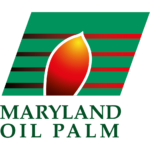Right of reply to the report of the NGO MilieuDefensie of February 10, 2023
- Accueil
- »
- Right of reply to the report of the NGO MilieuDefensie of February 10, 2023
The Dutch NGO Milieudefensie has made allegations against Maryland Oil Palm Plantation (MOPP) in its report entitled “Wilmar and financiers exposes to conflict palm oil in Liberia” and published on February 10, 2023.
SIFCA Group provides the following answers and clarifications.
- Daily tasks are allocated for some operational activities. Detailed assessments are conducted to ensure that these tasks can be reasonably completed within working hours. A daily wage which exceeds the legal and industry minimum is paid for the day. Employees who do not meet their daily tasks have their daily wages pro-rated according to the work done. There is a difference between Service Contractors and fixed term employee’s contractors; Service Contractors have their own Management procedures with their employers. Fixed Term Contractors working for MOPP are given the same daily wage as our employees along with rice.
- Chapter 16.5 of The Decent Work Art permits the employer to carry on deduction from the wages of an employee for various reasons. In the current Collective Bargaining Agreement with the Workers’ Union, there are two deductions made from employees based on their own arrangements; Trade Union Due and Health Insurance while considering other loans taken from outside of MOPP. Management does three deductions supported by Law and these are CBA; NASSCORP, income tax and rice. Loans borrowed outside are deducted through the Union for onward payment to where it was borrowed.
- MOPP does not have any contractor that has been with us for more than three years without being employed full time. Service Contractors are not our employees; they are employed by companies contracted by MOPP to peform certain task for her. No employee or contractor of MOPP ever got sick or hurt at work and was not issued a sick leave. We have referral path for our employees and their families. Employee getting wounded on the job is treated in accordance with Law; NASSCORP is informed about the incident in order for payment of Employee Injury Scheme (EIS) to be assured.
- No such complaint has been received by MOPP Management. The Company has a policy against sexual harassment and violence and continues to train its workforce on this.
- At no time MOPP has called ERU to forcefully disburse/arrest demonstrators. Conflicts between MOPP and affected communities have always been resolved through the Grievance Management Procedure.
- Mr. Saturday Wilson and MOPP has no Land Conflict. MOPP has no time harassed or Criminalized him. The Land spoken about is within MOPP Concession Area. Saturday Wilson is illicitly harvesting palms planted by MOPP around Gewloken and Besseken Communities and has been asked to desist. The MOPP management has reported the illicit harvesting of their palm to the Grievance Management Committee and the local authorities. The Grievance Management Committee and local authorities have engaged him on the matter, but he has refused to stop the illicit harvesting of MOPP’s palm.
- MOPP plantation is an old existing plantation first owned by Decoris Oil Palm Plantation and Government of Liberia in 1980s. The Plantation was firstly developed / Planted by Decoris Oil Palm Company (DOPC) in the 80s. DOPC left the Plantation due to Liberia Civil Crisis. The Government of Liberia put up an open and competitive bidding process in 2009 for the DOPC concession area of 8,800 Hectares according to the Government free of encumbrances. SIFCA won the bid and with the consent of the Surrounding Communities Cleared the Old Palm and replanted new palm. No new area was cultivated. During Crops Compensation their were only 2 families that had deeded Land in Decoris (Lewis & Giko families) and they were paid for the Land and Crops.
- MOPP DECORIS and MOPP LIBSUCO were privately owned by the government of Liberia and during the period of crisis when these plantations were abandoned, these lands were encroached upon by the surrounding communities to grow their crops and when MOPP took over, all farmers were compensated.
- Government and Local authorities went through a detailed process of informing and seeking the consent of local communities prior to the competitive bidding process. No communities were coerced in the process.
- It is the Government and Surrounding Communities as designated by Government responsibility to provide such land for outgrower purposes.
- MOPP recognizes all the communities surrounding the former Libsuco plantation. The only problem with the former Libsuco land is the harmonization of boundaries which is not within the purview of MOPP management.
- There is a conflict between two communities regarding the management of the community development fund by these two communities. MOPP has asked them to take care of this problem and show the boundary between these two communities. So far, they are not able to show this boundary. MOPP continues to pay the CDF on one account.
- MOPP has no time cultivated / moved into Community land and at no time destroy sacred places and shifting cultivation sites or bush. MOPP respects the rights, tradition, culture and religion of the Local Communities. According to Section 4.1c of the Concession Agreement the Government owner of Old existing Plantations say ” if ancestral land, traditional reserves or traditional sacred grounds are identified in the Concession Area while conducting survey, Government of Liberia shall use resonable efforts to locate and provide a parcel of replacement Government Land of equivalent size and condition to the portion of the Concession Area whic constitutes ancestral land, traditional reserves or traditional sacred grounds. This is why the Government provided extension of MOPP to Libsuco which is considered Government Plantation.
- Sufficient riparian buffer zone were created to prevent run off water from entering watersheds. Corrective measures have been put in place to mitigate the environmental impacts. No chemicals have been applied to those areas considered as wetlands.
- Measures are being put in place to ensure that wastewater from the Mill operations do not enter into surrounding watersheds. Wastewater from the Mill operations is diverted to the effluent ponds and treated naturally before being used for land application. Mill effluent is not discharged into any water body.
- MOPP provided water pumps to Tambo, Gewloken, Besseken, Gbololu and Gbewein. The other communities have water pumps constructed by NGOs but is maintain by MOPP.
- All Surrounding Communities within MOPP has reserve land for farming.
- MOPP has no Cattle for weed control. It is observed that cattle’s grazing in fields around MOPP concession are owned by unknown Communities dwellers.
- At no time has MOPP carried out deforestation. Land acquired by MOPP was an old existing plantation. Only in Wlowein were new lands were acquired and before land preparation commenced, HCV identification and demarcation were carried out by a third part certified consultant; and sufficient buffers were created around those HCV.
- MOPP is in compliance with its social obligation to the communities. The Surrounding Communities Development Fund account has long sense been opened at International Bank Liberia in Pleebo and the Check book is in the custody of the Community Development Fund Committee.
About Maryland Oil Palm (MOPP)

Since February 2011 MOPP signed a 25-year Concession Agreement with the Government of Liberia to rehabilitate and develop 8800 ha of the already existing Decoris Oil Palm and Libsuco sugar plantations located in Pleebo Sodoken District. A concession agreement was drawn with the Government of Liberia to replace the old palms and sugar canes with new variety of palms. In all acquisitions (including Wlowein), the company has engaged the communities in the entire process of land demarcation, participatory mapping, crop renumeration and crop compensation. All the FPIC verifiers are available.
Suivez nous sur

Fondé en 1964, SIFCA est un groupe agro-industriel ivoirien spécialisé dans trois domaines porteurs de l’économie africaine que sont, le palmier à huile, le sucre de canne etle caoutchouc naturel.
